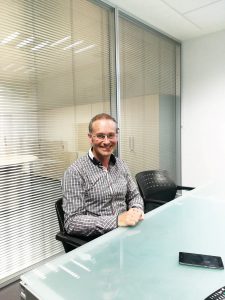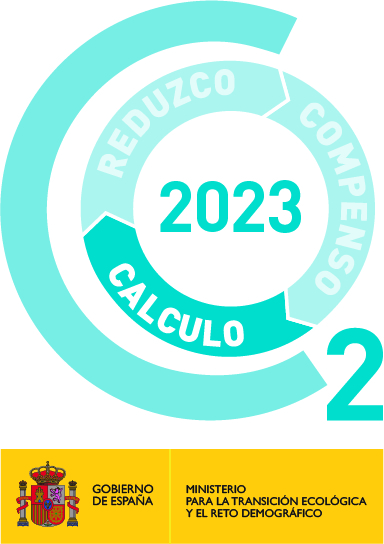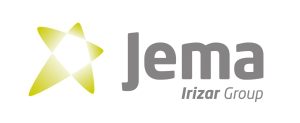
José Lucas has led the Customer Service department at Jema Energy since 2011. He is a veteran of the company who fully understands the organisation’s objetive and its environment, has he joined two decades ago as Technical Support staff and then spent several years in the Engineering department before taking on his current role. Lucas has been responsable for adapting the department’s solutions to the demands of a growing company, as much in areas of business as in geographical spread. There are two clear premises to his strategy: the importance of training and the need to adapt oneself to the characteristics of every customer.
What is the role of your department within the business?
We centralise and manage all aftersales service, from equipment implementation, to technical support, to predictive and corrective maintenance and customer training. We manage all areas of the business from the headquarters. Our function is to ensure the proper operation of equipment and to provide quick responses to setbacks which may occur.
What would you say is the most important thing to ensure high quality service?
In the case of Jema, as we rely upon several different areas of the business and we provide a service t a wide range of sectors, the most crucial thing is having an indepth understanding of each area of the business and each Project, in order to be able to offer personalised solutions. The needs of one customer are completely different to that of another, so we need to adapt accordingly.
What is your strategy for meeting those needs?
What sets us apart at Jema is that we try to ensure our customers are as autonomous as posible by offering them specialised, good quality training. We don’t see the área of Technical Support as a dimensión of the business that is destined to generate profit by itself, but as a route to gaining customer loyalty.
What benefits does the customer training offer?
There are businesses which prefer to have a relationship where their customers are dependent upon them, maintaining the ability to intervene when there are unforeseen issues in order to reap financial reward. This is not our philosophy. If we ensure our customers have sufficient knowledge to cope with setbacks – of course, with the help of our remote support service – we save time, we improve their satisfaction, we are more efficient and, furthermore, we free up technical and human resources, thus gaining in productivity. There are no projects without an incorporated training course.
Do you see the results?
Yes. Obviously, the sectors are very different, and in some cases, it is essential for one of our members of Technical Support staff to be assigned. However, in some sectors we have managed to reduce our in-person interventions, thus improving results. In sectors such as solar energy, the number of incidents we are able to satisfactorily resolve through remote assistance is close to 95%. In other sectors, such as critical power supply systems, the customer’s technicians are highly qualified. If we provide them with training on our solutions, we don’t even have to provide maintenance to them because they are capable of managing this internally. This is why it is so important for us to adapt to the nature of every project and every customer.
What methods do you have available to provide technical assistance in unforeseen circumstances?
We have 20 technicians at the head office, from where we provide assistance to more than 90 countries. Furthermore, we have our own branch offices and local technicians in many of these countries (Italy, France, Chile, Mexico, Brazil and many more).
What is your response protocol in these cases?
We have a 24 hour/7 days a week hotline. The most important thing is making sure that the customers that call when they have a problem don’t find themselves put through to a switchboard or an operator. The person answering the phone is always a qualified technician who has access to all the plans for every project so that immediate assistance can be offered.
What are the usual customer requirements when setbacks occur?
Of course, they need reliability and quality repairs, but also a speedy response. Jema is involved in highly critical projects where swift action is paramount. The perfect example is the rail sector. At Jema, we have developed power control regulation systems for the catenary of the Eurotunnel and the line which joins Charles de Gaulle airport with the centre of Paris. In these cases, we are contracted to provide in-person assistance in under four or even two hours, because otherwise the economic impact would be immense.
How do you achieve this speed of response?
It is extremely important that a geographically well-distributed technical support network is designed in order to cover all areas of activity. This is a challenge which is derived from globalisation, because whenever we need to cover more countries, we obviously need to allocate more means and resources. In countries such as Italy, we have up to five main facilities distributed throughout the entire country. Within this process there are added challenges, such as understanding and adapting to different legislation, which requires us to do a thorough study of each country.
A Sector in a Constant State of Change
In a sector with such a phenomenal rate of development as that of power electronics, what challenges do new advances present to the Technical Support Service?
We have to undergo continuous learning and virtually constant professional retraining. In its over 50-year history, Jema has experienced all development within the power electronics sector, from when systems were purely analogue to the exponential development of today.
How has this transformation been?
Drastic. A colleague who has just retired springs to mind, Jose Ramón Zabaleta, who witnessed the entire process. When he joined the company hardly anything in the State worked with power electronics. Nevertheless, Jema was capable of developing speed variators, which was something incredible for the time. Up until this revolution, systems were mechanical. We’re talking about machines that were 100 metres long with 50 or 60 motors. Jema offered a disruptive solution which was much smaller, lighter and more responsive. Today, changes continue to occur, and at breakneck speed. Today, everything is digital electronics and microprocessors, but on some occasions, customers have called us with products from 20 years ago and I have had to study the solution with a drawing on tracing paper completed in ink, which is something that seems outdated to us today, but in reality is not from that long ago.
Is managing the obsolescence of your solutions a challenge?
It is a significant challenge, because the improvements we implement into our range of products must retain a certain amount of continuity, and from the Technical Support Service we must, of course, store and maintain availability of all the information from past projects and apply current technologies to those solutions. In any case, advances also enable us to rely on more cutting-edge technology which helps us to facilitate and improve our service. At Jema, we make a continuous effort to incorporate this technology: components to improve remote assistance, thermographic cameras on mobile phones, etc.
How do the technicians manage to satisfy such evolving challenges?
In our team we have very different profiles, from Technical Engineers to backgrounds in Professional Training. The problem is that our market and the products we develop are so specific that only internal training and the benefit of years of experience mean we are be able to rely on solutions in such a demanding sector.
What does that internal training involve?
In addition to the skills required by law and imparted by external trainers, at Jema the Technicians train in the specifications of each product on the test bench. They don’t normally do an external visit until they have spent 5 or 6 months in training. And, of course, they are always accompanied on external visits by a more experienced member of staff. Furthermore, from the technical side of things, we take good care of their security and commercial endeavours, because we are aware that the manner and image they portray is very important.




